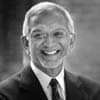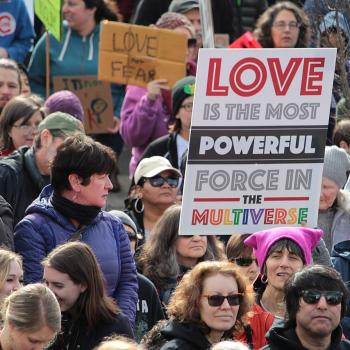 By Abdulaziz Sachedina
By Abdulaziz Sachedina
A disclaimer is in place before I proceed to predict the future of millions of Muslims from various cultures and nationalities who adhere to Islamic tradition. I cannot claim to be comprehensive in my assessment, since I am dealing with different manifestations of religiosity among Muslims. My field work in various Muslim cultures warns me against overgeneralizations that can take away the peculiarities of different peoples that make up the Umma -- community.
I am both an "insider" and an "outsider" to the tradition and to the community. As an insider, I face specific challenges in my assessment because of an inclination to look at my inherited perspectives and allegiances uncritically. The major challenge to me is to step outside my own community in ways that allow me to explore normative Islamic tradition and evaluate its ability to expand its hermeneutical horizons. How supple is the retrieval and interpretations that are sometimes implicit and at other times explicit in the scriptural sources for application in the modern age? How much of the tradition is relevant to the contexts in which the community finds itself? As an "outsider" academician, I am able to transcend my ties with the Muslim religious establishment and offer honest assessment of the future of the tradition and the community.
My extensive field work, which stretches for more than four decades, forces me to search for the future of Islam in peoples who profess that religion, that is, those men and women who have throughout history kept the flame of their hopes alight and have trusted the truthfulness of their creed and practice. And yet, I am cautioned against presenting them as a monolithic group. I must consider their differences in light of the religious practices and culture that suggest some kind of unity in their appropriation of the 7th-century Arabian religion. I cannot gloss over the diversity that exists among Muslims and their religious leaders about the special claims of Islamic scriptures on Islam's adherents, societies, and those states that claim to be founded upon its political values. The future of Muslims will be determined by the aspirations and expectations they maintain regarding historical Islam -- the religion and the culture that shaped its civilization. What is important to understand today is the relevance of this rich heritage that can speak to the Muslim peoples living under markedly different circumstances than their ancestors.
In order to speak about the future of Islam as appropriated by people who call themselves Muslims, I have identified three variable categories of inherited Islamic tradition that appear to determine the way Muslims adapt to or reject modernity and its accompaniment. To consider what Muslims hold important for their future, it is important to recognize what kind of Islam Muslims appropriate for their public discourse.
First, it is common to hear about Islam as a civilization and its influence as a culture throughout the regions of the world where it spread as a religious tradition. As one of the successful civilizations and major cultural traditions, Islam is acknowledged as an influential component of a political order founded upon some sense of justice and inclusive spirituality. It continues to motivate moral conduct through its normatively founded emphasis on equality in creation, thereby establishing norms for the universal human cultural heritage. Essentially, Islam as a world-embracing tradition inspires and sustains a civilization based on a civil religion that embraces pluralistic ideas and concern for those who are not adherents of its creed and practice. This kind of Islamic understanding provides legal-ethical grounds derived from its scriptural sources that enable the faith community to establish relations with other communities. Furthermore, this genre of Islam seeks to avoid raising historical contingencies to the status of authoritatively normative models by accepting the role of time and place in interpretive relativism as part of general progress toward necessary adjustment of Islamic beliefs and practices in contemporary society. This acceptance of relativism in Islamic understanding allows these Muslims to actively participate in modern societies as a necessary part of their social and political progress.
Second, there are those Muslims who see Islam as a religion and philosophy for humankind. Their vision of Islam is universalistic. They do not regard Islam as the only repository of human salvation, and in this sense, it cannot make exclusive claims. The major source of their connection with all humans is their belief that ethical knowledge is grounded in human nature informed by intuitive reason. Islamic morality is derived through conventional wisdom and moral insight discerned in the process of living with others in society. This genre of Islam affords centrality to the overlapping consensus in the matter of moral commitments that not only affect communal bonds but also advance intercommunal relations in the public forum. Many in the Muslim world today find this renewed emphasis on shared religious-secular ethical commitments for the public good relevant to their future in the ever-shrinking national and cultural boundaries and the emergence of global universalism at many levels of their material and cultural relations with larger human communities.




